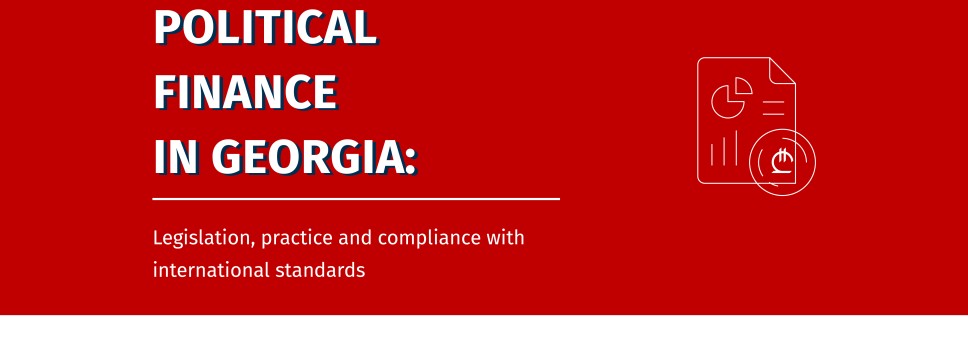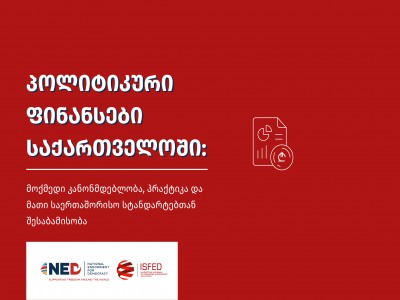Political Finance in Georgia: Legislation, practice and compliance with international standards
The present policy document delves into the legislative framework concerning political finance in Georgia and evaluates existing practices and their alignment with global standards.
Generally, Georgia’s legislation adheres to essential international standards regarding political finance, permitting political entities to receive income from private sources and offering direct and indirect state funding provisions.
Nonetheless, a critical issue arises from financial disparities, as the incumbent party tends to garner significantly larger donations than its counterparts, fostering financial imbalances within the political landscape. Donations are also problematic from the standpoint of political corruption. In almost every election cycle, there are many cases when donors of the ruling party receive large government procurement contracts and property.
The State Audit Office oversaw political finance in Georgia until September 1, 2023. In September, these functions were transferred to the newly established agency - the Anti-Corruption Bureau. Over the years, the main challenge faced by the State Audit Office in terms of its mandate was that this agency did not have the authority to conduct criminal investigations, thus making it highly ineffective in investigating cases of political corruption. Since the Anti-corruption Bureau does not have this power either, this agency will face the same challenge.
Regarding the institution’s independence, the Anti-Corruption Bureau is likely to be no better than the State Audit Office, as the Prime Minister of Georgia appoints the head of the Bureau. Electing the Bureau’s head through a qualified parliamentary majority rather than a direct appointment by the Prime Minister is essential to ensure institutional autonomy. Additionally, endowing the Anti-Corruption Bureau with powers for criminal investigations is deemed necessary for strengthening its oversight and enforcement capabilities.


